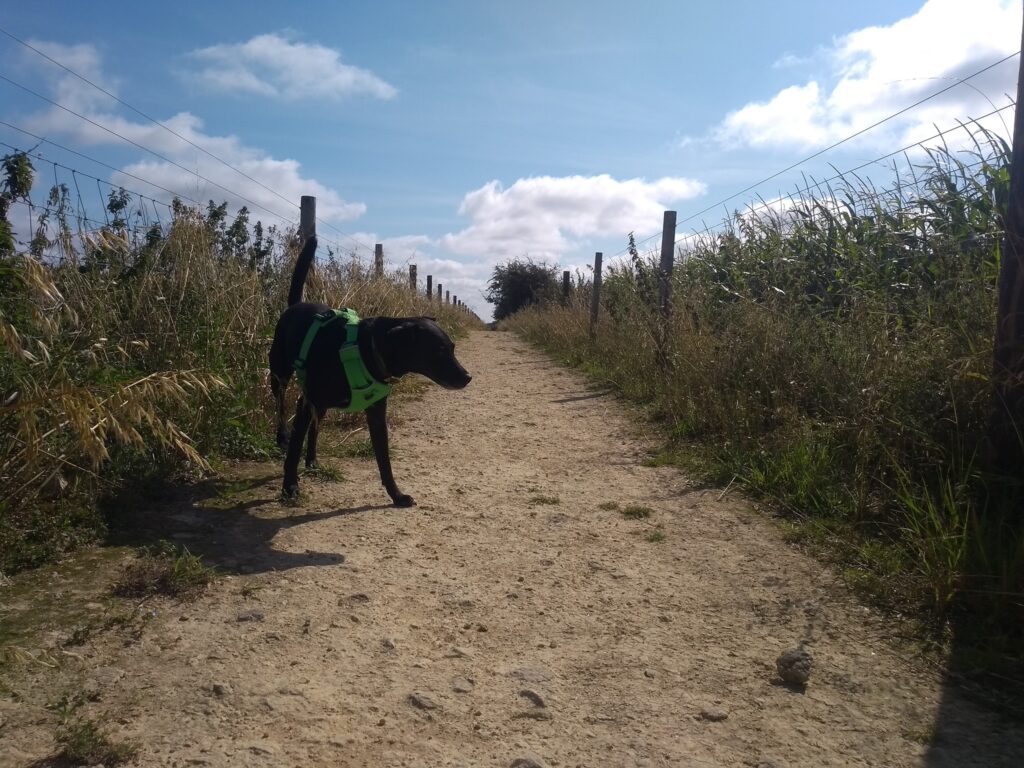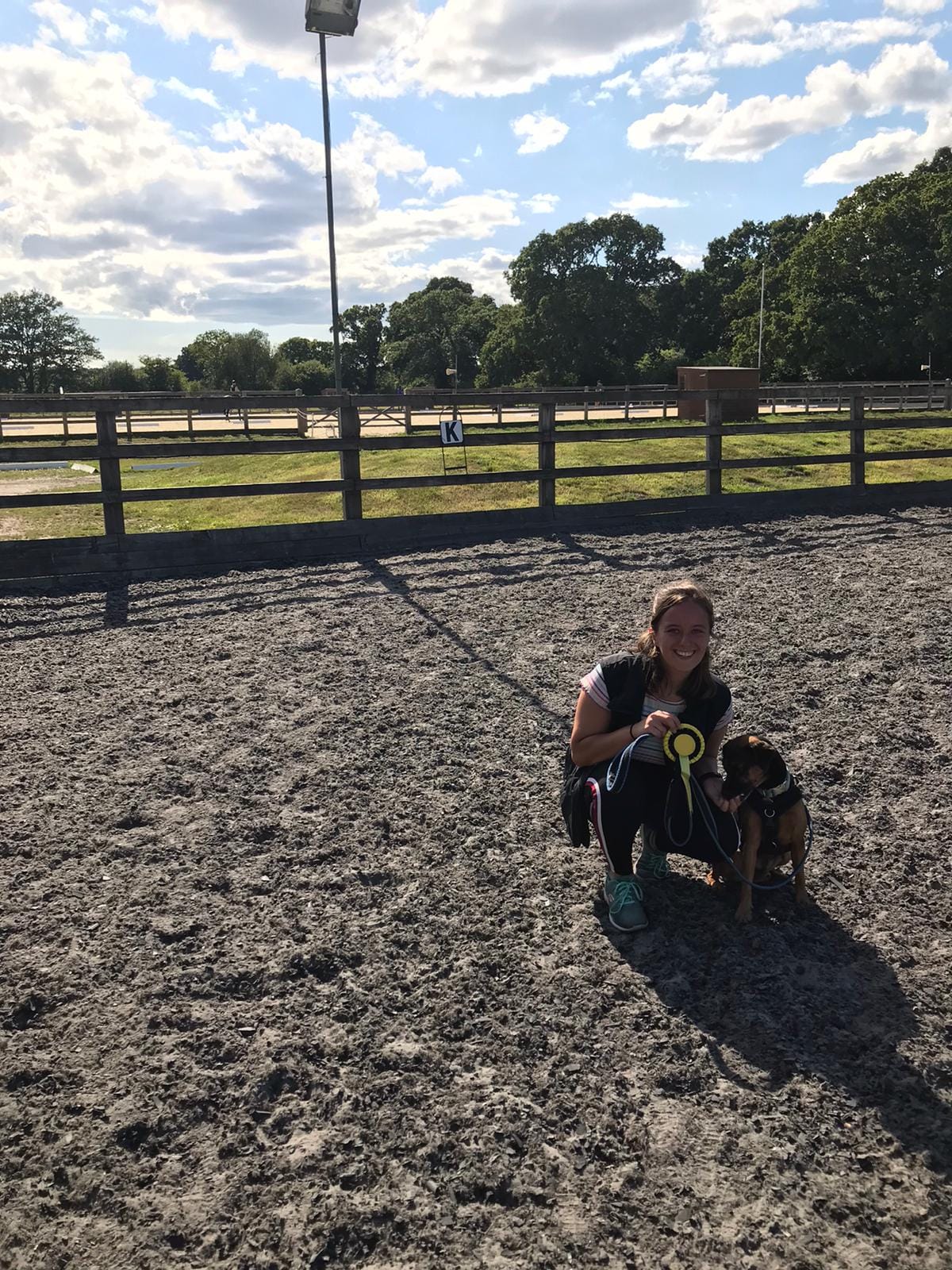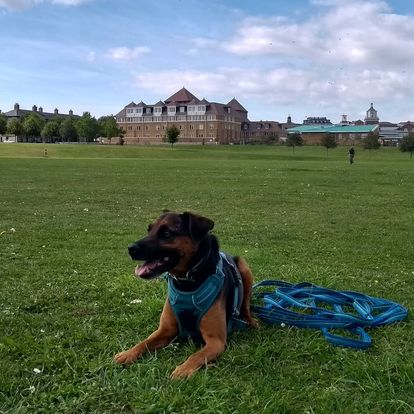When it comes to looking for a dog trainer it’s a bit of a minefield! In the UK, dog training and behaviour is completely unregulated. You, reading this, could create a Facebook page or a website and start taking money for training someone’s dog tomorrow. There is no need for a dog trainer to undertake any amount of study, or a test of any kind. You need never have owned or touched a dog in order to legally be a dog trainer in the UK. This, in combination with a number of misconceptions about how dogs and people learn, which I won’t be going into as that’s another problem for another day, means that it’s so easy to find a trainer who you regret using at the end of the day. This post is all about how to select a trainer that you’re not going to regret.
1. Be clear about what you want to achieve.

Most people contact a trainer when they have a problem to address, or they have a puppy where they would like to prevent problems from developing. Neither of these tells you, or your trainer, what your solution looks like. If you know what your solution looks like, the task of finding a trainer becomes much easier. Let’s say you’ve got a dog reactive dog. Instead of your goal being ‘I want my dog to stop reacting’, define your goal in more objective terms like ‘I would like to be able to walk my dog on our usual route from our house without them reacting at the one or two dogs that we’ll see.’ Or ‘I would like to be able to take my reactive dog to events with the family and walks with my other dog and have that be more manageable.’ You may have multiple goals, and that’s fine! Prioritise them and find a trainer who fits the majority of your goals and ticks the most boxes. This leads us nicely into step 2.
2. Find a trainer who has achieved your goals (or ticks the majority of your boxes).

This is the most important thing. If a trainer hasn’t achieved a goal that you’ve got, how can they help you get there? Trainers who have been where you are now are the trainers who know what it’s like to live with that problem and deal with the other elements of that problem which that textbooks don’t talk about. For example, having owned reactive dogs, resource guarders, dogs with poor recalls and a dog who was great in classes but completely blew me off when out on a walk, I know how hard it is to find it within you to simply walk your dog when the thought of it makes you want to cry, when you worry about the judgements that people out and about will make when your dog reacts, when you’re concerned about how to move through a room without triggering your dog who is currently resource guarding something, for feeling like a failure, that you’ve let your dog down, the frustration that comes with having a dog who you know can do the behaviour beautifully in class but totally ignores the most basic of requests out and about.
A trainer who hasn’t been where you are won’t be able to appreciate how hard it is to live with that problem on a day-to-day basis and deal with the emotional load that comes with many behaviour problems. If a trainer hasn’t had a super environmentally focused dog, they won’t know the struggles that comes with and the differences you’ll need to make in the training plan in order to be successful.
A trainer who has been there and done that when it comes to the problem you’re facing knows how to fix it! There are elements of training that cannot be learned from seminars, workshops or textbooks. But having been through it, trained it in a way that is manageable for daily life will make a training plan from a trainer a great one instead of an okay one.
Looking away from problem behaviours, if you want to do a sport with your dog just for fun then you simply need and instructor who trains that sport just for fun! If you want to do a sport and have a go at competing or want to compete to a certain level (that is realistic for your dog) then you need a trainer who has been to that level or competes at a higher level and is happy to introduce the sport to those who want to have a go at competing but without putting pressure on you to make it to the top. Bear this in mind when looking to pet dog trainers for sports activities.
3. Ask the trainer what they'll do if the training plan doesn't suit you.

So, you decided upon your goals, found a trainer who has been there and achieved those goals with their own dogs, now you need to find out if their teaching style suits you. No matter what your goal, if your trainer provides a programme that you cannot do or do not have the time to implement, that training plan is not a good training plan! No matter how serious a problem, or how well-intentioned we are to implement a training programme, we need a trainer who is willing to adjust with our lives. If your tell your trainer that you’ve got a lot on and can’t train as much as normal, how are they going to adjust their training plan? They may say that the ideal plan is plan A, but no matter how ideal a training plan is, if it’s not going to be done then it’s not a good training plan! I will go to the end of the Earth to find training plans that work for my clients. It may not be the best training plan going, it may be plan B, C, D or even Z, but if it’s a training plan that my clients can actually implement and fit into their daily life then that’s the training plan I want to go with.
These are my top three tips for selecting a trainer. Is there anything that you find is crucial when finding a trainer? Would you replace any of my tips? Let me know in the comments!
